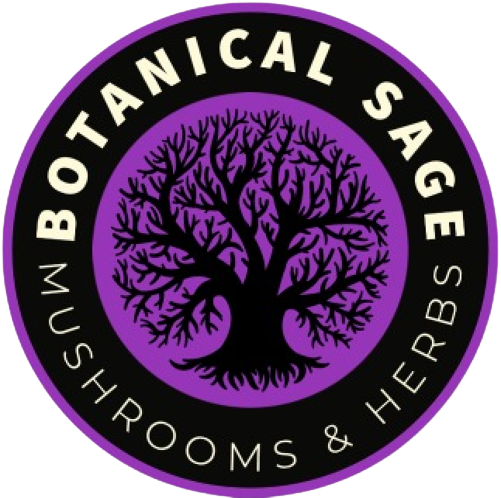Botanical Sage
Bee Pollen Granules
Bee Pollen Granules
Couldn't load pickup availability
Bee pollen, the pollen collected by honeybees and mixed with nectar or saliva, is often referred to as a "superfood" due to its rich nutritional profile. While scientific research on its medicinal uses is ongoing, bee pollen has been used in traditional medicine for various purposes. Here are some of the potential medicinal uses of bee pollen:
-
Nutritional Support: Bee pollen is packed with nutrients, including vitamins, minerals, proteins, carbohydrates, fats, enzymes, and antioxidants. It contains essential amino acids, vitamins B complex, vitamin C, vitamin E, beta-carotene, and minerals such as calcium, magnesium, potassium, and iron. Consuming bee pollen may provide a concentrated source of nutrition, supporting overall health and vitality.
-
Immune Support: Bee pollen is believed to support immune function and increase resistance to infections and illnesses. It contains antioxidants and bioactive compounds that help strengthen the immune system, increase white blood cell production, and enhance the body's defense mechanisms against pathogens.
-
Allergy Relief: Some people use bee pollen as a natural remedy for seasonal allergies. It is thought that regular consumption of small amounts of bee pollen may help desensitize the body to pollen allergens, reducing allergy symptoms such as sneezing, runny nose, and itchy eyes. However, scientific evidence supporting this use is limited.
-
Energy Boost: Bee pollen is often touted for its ability to increase energy levels and combat fatigue. It contains carbohydrates, proteins, and B vitamins that provide sustained energy. Athletes and individuals seeking a natural energy boost may incorporate bee pollen into their diet.
-
Digestive Health: Bee pollen is believed to support digestive health and alleviate gastrointestinal issues such as indigestion, bloating, and constipation. It contains enzymes and fiber that aid in digestion, promote nutrient absorption, and support bowel regularity.
-
Anti-inflammatory Effects: Bee pollen contains flavonoids and phenolic compounds with potential anti-inflammatory properties. It may help reduce inflammation in the body and alleviate symptoms of inflammatory conditions such as arthritis, asthma, and inflammatory bowel disease.
-
Antioxidant Activity: Bee pollen is rich in antioxidants such as flavonoids, polyphenols, and carotenoids. These antioxidants help neutralize harmful free radicals, reduce oxidative stress, and protect cells from damage. Bee pollen may help prevent chronic diseases, slow down aging processes, and promote overall health and longevity.
-
Skin Health: Some people use bee pollen topically for its purported benefits for skin health. It is believed to have moisturizing, soothing, and anti-inflammatory properties that may help improve the appearance of the skin, reduce inflammation, and promote wound healing.
-
Cardiovascular Health: Bee pollen may have beneficial effects on cardiovascular health. It contains compounds such as rutin and quercetin that may help lower cholesterol levels, regulate blood pressure, and improve blood circulation, reducing the risk of heart disease and stroke.
It's important to note that while bee pollen offers several potential health benefits, scientific research on its efficacy and safety is ongoing. Some individuals may be allergic to bee pollen or experience adverse reactions, so it's advisable to consult with a healthcare professional before using bee pollen for medicinal purposes, especially if you have any underlying health conditions or are pregnant or breastfeeding.


